Energy from waste
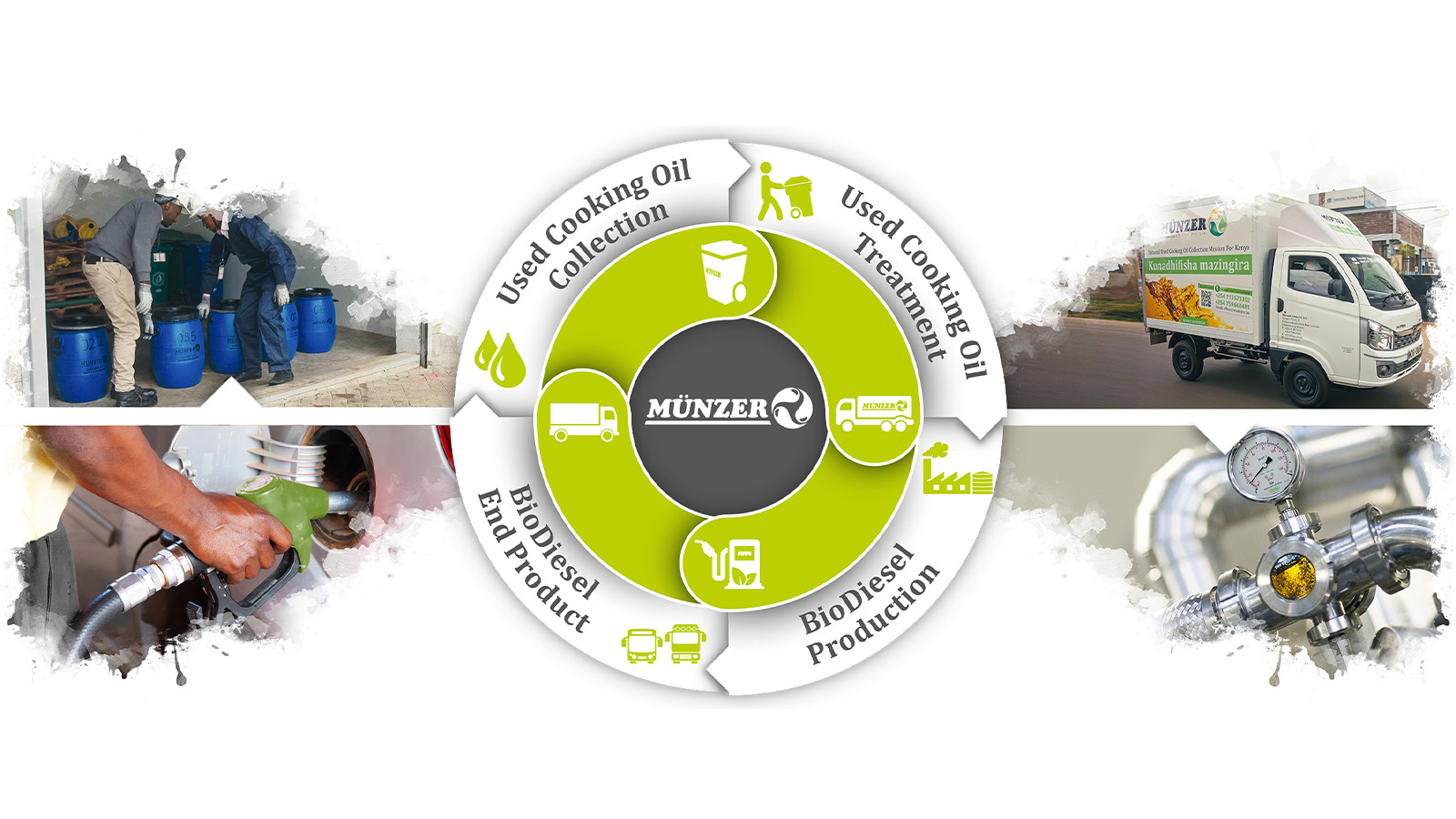
Recycling management and sustainability
We collect waste and residual materials, process them to make high-quality raw materials, and turn them into renewable energy. That is a true embodiment of circular economy. In doing this, we are not only protecting the environment and reducing greenhouse gas emissions; we are above all developing new value chains, creating sustainable jobs, and growing the recycling and biofuel industries.
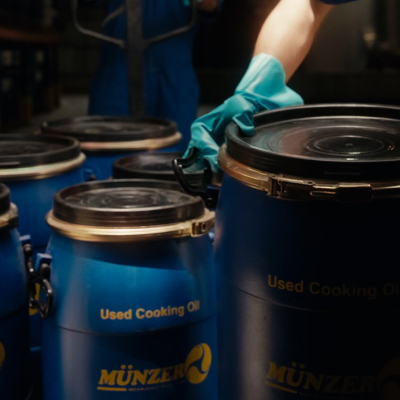
The first step is the collection. Used cooking oil (UCO) is collected in special containers from restaurants, hotels and other catering and food businesses as well as private households.
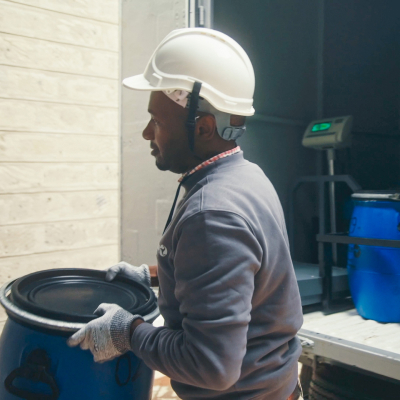
We operate our own fleet. This means we can ensure that Münzer Bins containing used cooking oil (UCO) are exchanged on a regular basis. All we leave behind are clean, completely emptied containers and satisfied customers.
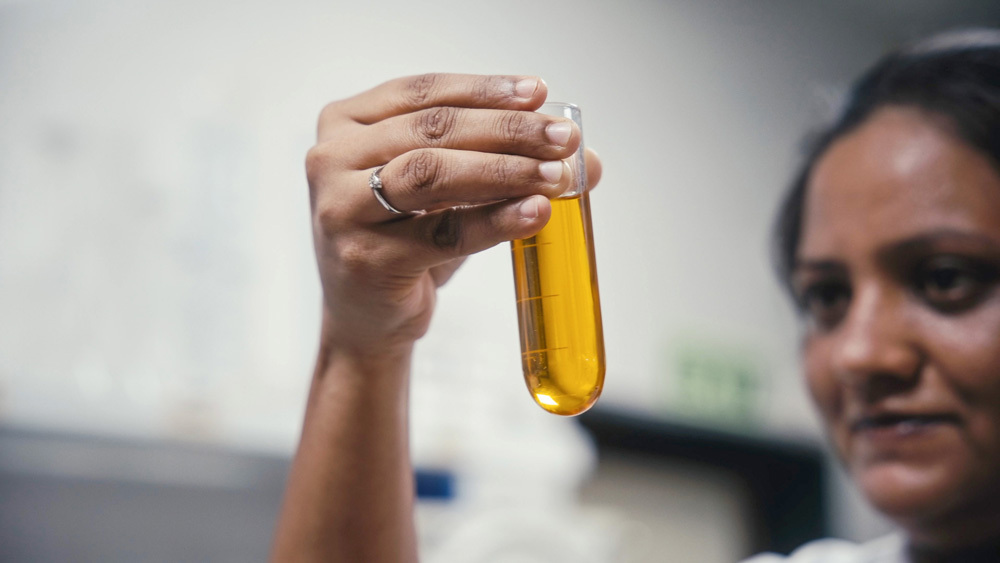
After being collected, the used cooking oil (UCO) is cleaned at our processing plant. This involves removing contaminants such as food residues or water in order to obtain a high-quality raw material as the end-product.
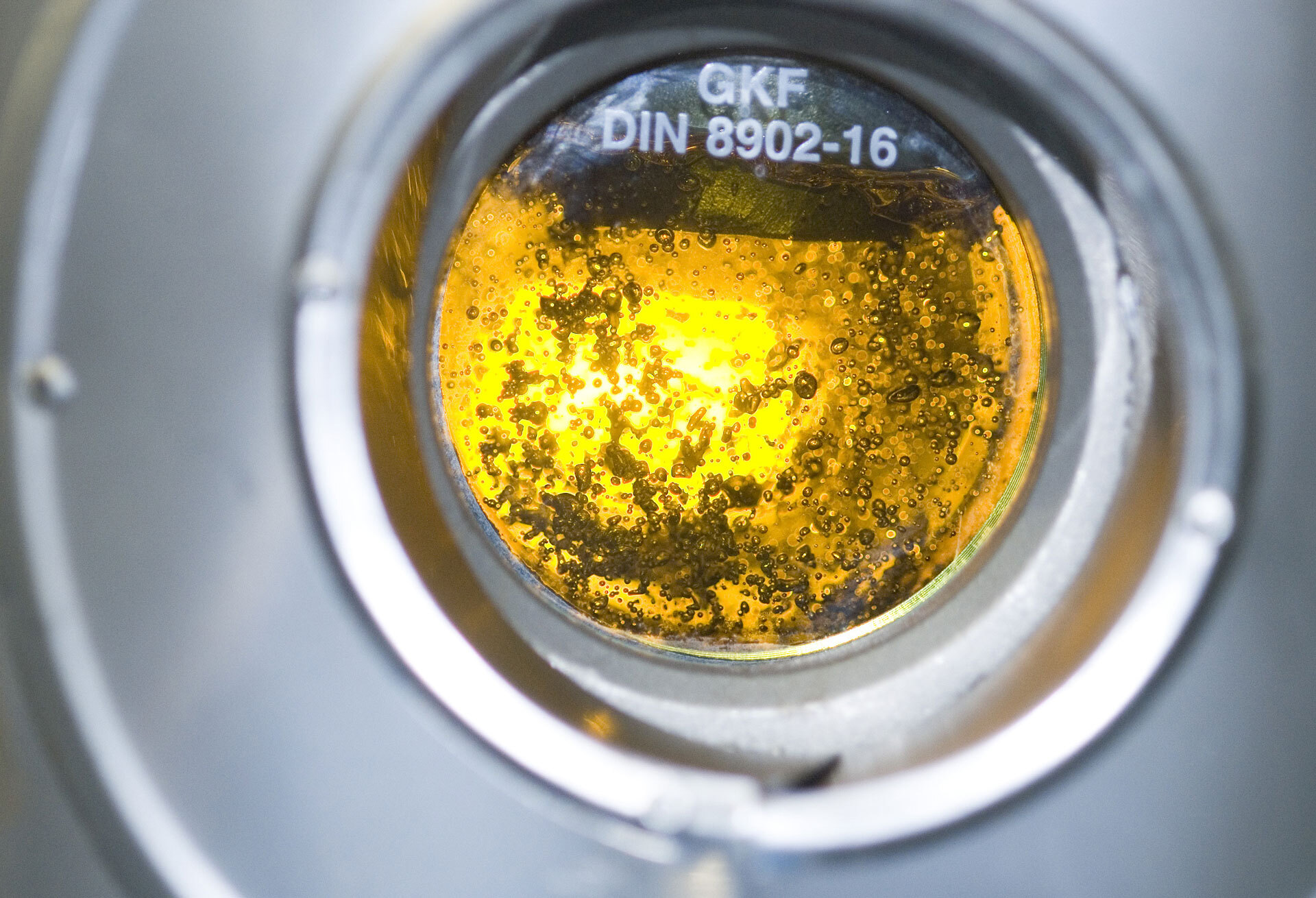
The purified used cooking oil (UCO) is turned into BioDiesel by the chemical processes of esterification and transesterification. In addition to BioDiesel, this also produces high-grade glycerine. The catalyst is utilised as a component in the fertiliser industry.
Our approach
We implement the recycling management every day. Our innovative approaches to resource utilisation, waste avoidance and reprocessing aid the circular economy in the long term. The processing of used cooking oil (UCO) into BioDiesel, in particular, demonstrates that used materials are not just waste, but materials that can be recycled into sustainable resources and raw materials.
Our biogenic fuel fully meets European quality and sustainability requirements and – as scientifically confirmed by independent studies – delivers CO₂ savings of 55 to 93%.
